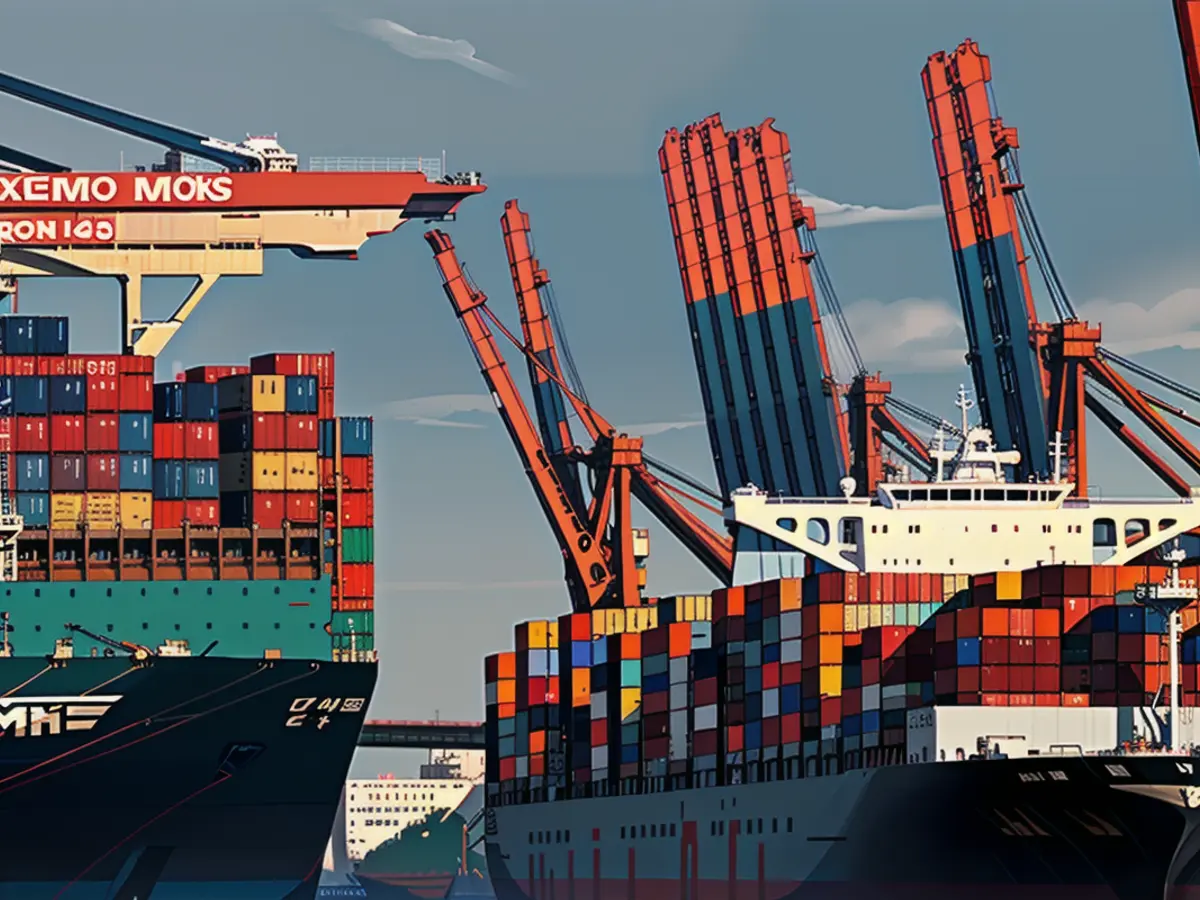The government at the national level is taking action in response to the current issue. - Wissing: Much work remains to achieve climate-neutral shipping.
Susanne Henckel, the State Secretary, has stated that by the upcoming National Maritime Conference in spring 2025, the results should be presented to initiate implementation afterward. Robert Habeck, the Economics and Climate Protection Minister (Greens), emphasized the importance of strengthening the maritime industry's competitiveness while demonstrating that climate protection and industry transformation can coexist.
Representatives from the shipping sector, maritime economy, energy suppliers, and industrial and environmental associations are contributing to the strategy development, focusing on alternative propulsion and energy systems, fleet modernization, and industrial policies.
Germany must achieve its objectives
Wissing referred to the federal government's goal of making Germany climate neutral by 2045. According to the Climate Protection Program 2023 of the German government, the action plan should entail a "roadmap" for market launching climate-friendly ship engines and fuels.
Last summer, the United Nations' organization overseeing global shipping, the International Maritime Organization (IMO), decided that shipping worldwide needs to cut greenhouse gas emissions to zero. Approximately 90% of global cargo transport is managed through sea vessels. Shipping's primary fuel sources are heavy fuel oil and marine diesel for larger container ships, with some using liquefied natural gas (LNG, which is still a fossil fuel). Shipping is responsible for around 3% of global CO2 emissions.
Clara Thompson, a Greenpeace transport expert, commented that while major shipping companies have embraced climate-friendly technologies, the federal government has yet to follow suit. The current uncertainty surrounds the feasibility of producing alternatives to ship diesel or heavy fuel oil, such as e-fuels, on a large scale. Thompson believes that instead of continuing to entertain the concept that e-fuels can play a role in road transportation, they should be utilized in sectors where batteries aren't viable, like in aviation and shipping.
Read also:
- Tough return to normality in snow and ice
- Fewer unauthorized entries: Domino effect through controls
- Trial against BND employee from mid-December
- Xhaka leads Leverkusen to triumph in cup tournament, scoring two goals.
- The Federal Government's action plan, as mentioned by Volker Wissing, includes a "roadmap" for market launching climate-friendly ship engines and fuels, aiming to achieve Germany's climate-neutral goal by 2045.
- At the upcoming National Maritime Conference in spring 2025, the results of the strategy development, focusing on alternative propulsion and energy systems, will be presented for implementation.
- Robert Habeck, the Economics and Climate Protection Minister (Greens), emphasized the need for strengthening the maritime industry's competitiveness while ensuring climate protection and industry transformation coexist.
- The shipping sector, contributing to the strategy development, plans to implement alternative propulsion methods, fleet modernization, and industrial policies to reduce greenhouse gas emissions.
- The International Maritime Organization (IMO) has decided that shipping worldwide needs to cut greenhouse gas emissions to zero by the mid-century, with shipping responsible for around 3% of global CO2 emissions, primarily from heavy fuel oil and marine diesel.
Source: www.stern.de








